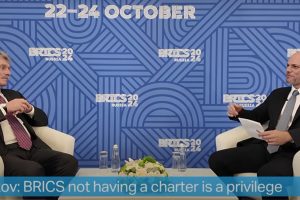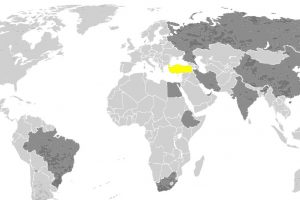In some parts of the world, working conditions in the textile industry remain unacceptable even six years after the Dhaka garment factory collapse in Bangladesh. The disaster was a structural failure that occurred on 24 April 2013 in the Savar Upazila of Dhaka District, where an eight-story commercial building called Rana Plaza collapsed. The search for the dead ended on 13 May 2013 with a death toll of 1,134.
At a meeting of fashion retailers and non-government organizations a week after the collapse, a new Accord on Factory and Building Safety in Bangladesh was created. The agreement expands on a previous accord signed only by the US-based Phillips-Van Heusen Corporation, which owns Calvin Klein, and German retailer Tchibo.
Human rights associations around the world stated their concern over the increasing number of factory-building tragedies in the textile industry.
The German development organization INKOTA and the German charitable society cum ratione are among these advocacy groups which act for worker protection and more justice in the international fashion world which seems to be glamour on the first glance but miserable and exploitation behind the runway at the fashion shows.
On initiative of INKOTA and cum ratione the TOP NEEDLE prize which was awarded for the fourth time during this season’s Berlin fashion week. Every year, the award honors initiatives that raise awareness of sustainability in the global textile, footwear and leather industry through innovative and effective action. Winners of this year’s TOP NEEDLE are: Folkdays, Kabutze and the Clean Clothes Campaign.
The winners are committed to human rights at work in an outstanding way, their work is intended to motivate imitators. The TOP NEEDLE is endowed with 10,000 €. The prize was awarded at the fashion fair Neonyt in Berlin. Neonyt is the global platform for tomorrow’s fashion and sustainable innovation during the Berlin fashion week. The Neonyt community is defined by fashion, a forward-looking approach, its affinity to technology and awareness of sustainability. „It is unified by the desire to drive a process of change in the fashion industry or driven by a curiosity to learn more about these issues in the future“, says Messe Frankfurt which organizes the Neonyt exhibition in Berlin.
The jury selected the team of the fair trade fashion label Folkdays because it proved how textile companies can produce clothes in a sustainable way. The producers of Folkdays want the entire textile industry to comply with human rights law in their supply chains. With its successful petition and campaign „Fair by law“, Folkdays called on the German government to establish binding rules in the textile industry. More than 150,000 people have signed the petition „Fair by law“. It is important that fashion designers demand the legal regulation of human rights standards.







Add Comment